The Luke Wyatt story stretches from a Virginia college town to Berlin, but some of the 36-year-old musician and video artist’s most crucial years were spent in D.C.
Through much of the ’00s, Wyatt was part of an extended local crew of ex-punks and video-store heads who were building dance-oriented record labels such as Peoples Potential Unlimited, Future Times and Awesome Tapes From Africa. He initially made his name with work he called “video mulch” — skewed, collaged VHS-vault footage combined with sometimes nutty winks and nods to decaying cultural memory — that graced, among other things, the PPU label’s two Video Party DVDs of obscure regional funk.
But music was in Wyatt’s future: After ditching the District for Brooklyn at the turn of this decade, his own compositions — instrumental, sometimes experimental, often groove-oriented and usually grounded in synths and/or guitars — took off via tastemaker New York label L.I.E.S., run by Ron Morelli, an ally of the D.C. crew.
Most of that work has been under the name Torn Hawk, including two LPs released this year: the well-received Through Force of Will and Let’s Cry and Do Pushups at the Same Time. (The latest video from that album, “Because of M.A.S.K.,” is as good an entry point into Wyatt’s brain as anything.)
Wyatt, who now lives in Berlin, is a thoughtful interview subject, and prior conversations often turn to how his art balances machismo and vulnerability. Other facts: He’s in a relationship with Sheela Rahman, who makes music as Xosar. (She’s all over the “Because of M.A.S.K.” video.) His stepmother ran an indie movie theater in Charlottesville, where he was born. He grew up in New Jersey, where he learned guitar from Charles Bissell of The Wrens. He’s comfortable doing an exegesis of Dire Straits, likes to read and occasionally will drop a Michael Nyman reference.
I asked Wyatt about D.C., love, energy, exercise and his own sense of how people view and hear his work. The interview — conducted entirely via email, at an almost surreal pace over the course of a few weeks — has been footnoted and edited (but not mulched).
Bandwidth: You’ve been gone from D.C. for awhile now. When you look back, what did the city give you? What sticks with you — musically, creatively, intellectually, whatever — from your time here?
Luke Wyatt: One human, one persistent clever elegant generous and kind force of nature: Andrew Morgan. PEOPLES POTENTIAL UNLIMITED.
Yeah, there are a bunch of other guys, people in his wake that led to me being in the position where people regard my expression seriously, but Morgan* made it happen. Morgan led to Morelli — these are two guys I force the Angel Gabriel to play pool with. (I Force Angels is the name of the next Torn Hawk record.)
I mean, everybody pretends to know about how Morgan puts out good records or whatever, but have you experienced his snack display, or the way he wipes down a counter while flipping the side of a record and adjusting the lighting in one minimal gesture?
He and his wife Danni saved my life in D.C. and directed my nascent weirdness towards love and sharpened expression … by employing me as a fixer at his claymation camp (where I shepherded the brainstorms of gore-obsessed 12-year-old boys towards a union of purpose with always fastidious and classy 12-year-old girls) and as a fake carpenter and MealBuster pizza-eater around his house.
There is no D.C. without Andrew for me. I love all those man-children that crawled out of their postpunk cocoon and started making dance music but ANDREW WAS DOING HIS THING ALL ALONG.
I think D.C. is a s**t town unless you are in politics, in which case your life is like an episode of True Blood and you have to keep regular waxing appointments.
Andrew has a way of making D.C. tolerable — he loves to go down to the waterfront and order a grilled cheese and start to get casually drunk.1 Then we’ll get back in his Acura, and pretend that people we see on the street are walking in time to the bad songs we are listening to on the radio.
Elsewhere in the landscape, you have suave gentlemen eloquent hipsters like Svenonius2 who somehow exists with the other Ian3 — and this coexistence shines a light on the frailty of both those guys’ poses. Though I love Svenonius — I am just annoyed that he enables D.C. by his existence. (Move to Krakow please!)
Less Flexible No Sense of Humor Ian Fugazi: Please realize you are simply a sharp businessman, great rhythm guitarist and gutturally emotive singer that creates articulate tantrum music for workouts. “Repeater” is so good like that! “Repeater”= reps.
Those comments about D.C. — if you don’t mind me aggressively summarizing them — are all about “love” and/or “energy.” Even some of your weirdest creations, musical or otherwise, seem to have undercurrents of love, or at least affection. Am I right about that?
Yeah I would say a lot of my creations have dealt with me caring about people or things or whatever. It’s nice to push an undercurrent of positivity out there if only as a contrast to the harsh other elements I have put in play. I was also a little preoccupied with “love” for awhile, like many humans before me. As much of a worked-to-death theme as love is, I think you can still break some original material off that old tree.
Let’s talk about “energy,” too: I hear that you like to work out a lot. You’ve even got a song on the new album called “Return to the Pec Deck.” For you, what’s the connection between music and fitness? One is about sharing energy with people, the other tends to be about expending energy. (Obviously, people like to listen to music when they work out; I suppose I’m asking about how you frame “music” and “exercise” in your own worldview.)
To go back to your question for a moment about the “undercurrent of love” in the things that I make: I have a mood disorder where I manufacture my own MDMA. This happens if I don’t sleep enough for a day or two or if I drink enough, past the point of drowsiness, to a plateau of clarity and emotional generosity. In this state I will say things to people that are true but sometimes unnecessarily gooey.
Other people have this chemical issue, it has different names.
I just try to manage it and not make a fool of myself.
But I also try to never be embarrassed by saying something loving, as over-the-top as whatever I said may sound to me later, when I come down. Embarrassment is the most useless emotion. If you can’t be embarrassed you are kind of invincible.
As for exercise: it is a way I try to manage my runaway moods so I don’t just exist in these extremes of gooey-ness or withdrawn ice throne. When I discovered exercise I started getting a lot more done and stopped getting arrested.4
“Embarrassment is the most useless emotion. If you can’t be embarrassed you are kind of invincible.”
Music is a drug that helps sculpt moods; it dovetails with the exercise to put me in a place where I write positive movies about my future and come home from the gym ready to take the snail steps to make the movies real.
Alternatively, I could take Zoloft or something to be a functional person, but I have found that is not a sustainable routine. There are a number of studies about the efficacy of regular exercise versus these drugs, and exercise “works better.”
This is not to say I don’t struggle with a sort of seesaw existence. I hate/love alcohol, wish we’d never met. Looking for other nondestructive ways to blow off steam: Somebody give me a call if you have a good idea. (If your idea is parasailing, don’t bother, I have heard that one.)
With all of that in mind, what does the new album represent, to you? Is there anything about it that people are misperceiving?
This is a good question.
Through Force of Will is the (hopefully) obvious aesthetic antecedent to Let’s Cry….
With TFOW I went all in with the smeared, distressed tattered sound that had occupied me since the first L.I.E.S. releases. This was the first time I was able to present an album’s worth of tracks of this sort.
But the truth is that all the tracks with this sound, on L.I.E.S. releases or otherwise, and including Through Force of Will, came from the same four-month period of recording; a controlled spill of formed song and sound ideas that felt quite predetermined as they came out; probably because I had obsessed over the process for so long — the (for me unique at the time) abusive handling of the tracks to achieve this cohesive sound. It was a concept I had to get out of my system.
The music I had made for a long time before that was all about delineation and crispness — very computer-sounding guitar and synth music. I got sick of the hard edges and always undoable decisions of computer workflow, so I went into the smudge zone for this four-month freakout.
Coming out of that, most of the tracks on Let’s Cry… were forward-looking experiments where I tried to lead myself out of the tape-dominated, smeared production system that had cleansed my palette for those four months, back towards the sushi music I had made (pretty much) privately for years before that. I began to add more overt layers of cleanliness, putting fresh frosting on …
Spray-painting dead leaves
Drawing on old denim with crisp metallic markers
Now I am impatient when people limit their idea of what Torn Hawk might sound like to this “tapey/VHS” sound. I get it — a lot of my video work uses VHS. But it is VHS in a hi-fi terrarium, or contrasted with heavy-handed digital brush strokes. At least that is how I see it. And my video work operates on a different track from my music (holding two conversations at the same time, with intermittent eye contact).
Of course it is foolish for me to expect that everybody will have paid attention to a few other things that I have done, especially since they are under other names, but the future I imagine for Torn Hawk embraces the whole available spectrum of fidelity and instrumentation, and being aware of these releases (here, here, here) will give a rounder reading of what I am about.
Let’s Cry and Do Pushups At The Same Time is simply my summation of a fruitful detour into forgiving smudge, my final report from the frontiers of duct tape and moth-gnawed sweaters. It is important for this and for holding production bridges to the future (past) with its hints of clarity.
Of course I hope it is observed that the through-line in all my music, regardless of surface aesthetics, is strong melody, and that anything I feel fit to release attacks people at that level. That is all I really care about.
* I asked Morgan for some insight on Wyatt. This is what Morgan wrote back: “We all knew Luke was gonna break into the biz, just didn’t know where. Late night New York networking led him into the music video-mulching world, he was making better music than any of the artists he was making videos for and titled his songs like no one has done before. Comical to a casual listener, accurate for those that know him well: “Life After Ghostbusters”! I heard Luke’s next move is stand-up comedy.”
3 Ian MacKaye.


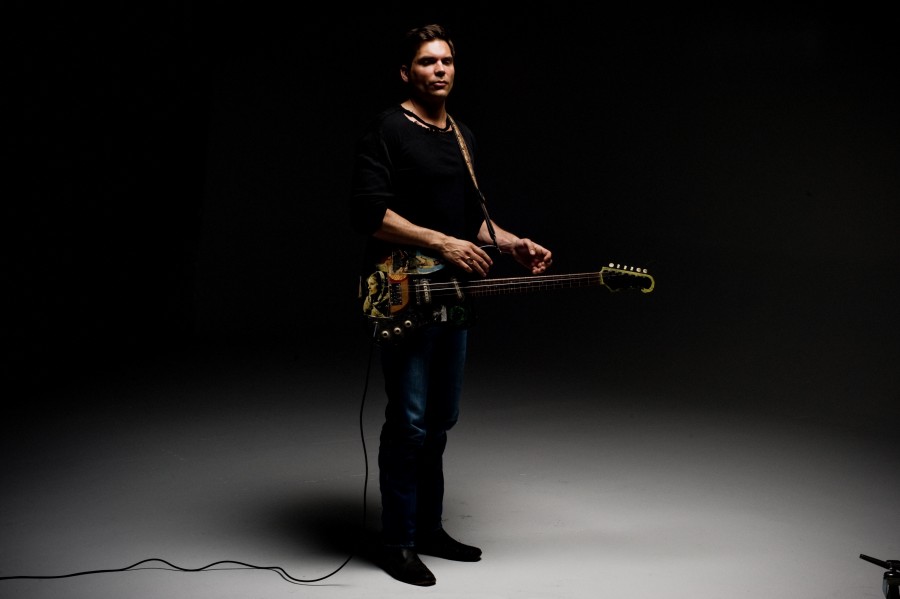
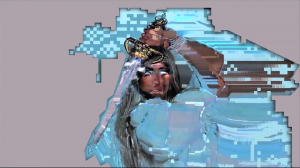
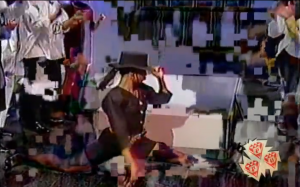
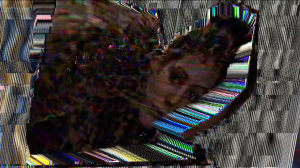
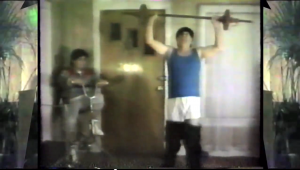
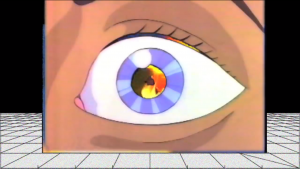
Pingback: Arts Roundup: “Video Mulch” Edition - Arts Desk()
Pingback: District Line Daily: Are You Marion Barry’s Successor? - City Desk()